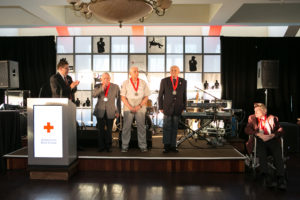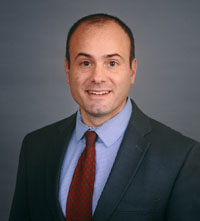It can’t hurt to hear what a former FBI negotiator has to say about negotiation strategy.
Chris Voss, former lead international kidnapping negotiator for the FBI, shares his most effective tips on how to become more persuasive in his new book, Never Split the Difference: Negotiating As If Your Life Depended On It (HarperBusiness, 2016). Business Insider recently posted an insightful article by blogger and Wired writer Eric Barker culling seven of the best tips from Voss’s book. As Barker explains, Never Split the Difference dismisses traditional negotiating tactics such as being abrupt and making your opponent feel that you have the upper hand. Instead, Voss advocates focusing on emotions – conveying empathy, listening to the other side, and building trust. I strive to use the same approach in my negotiations, and empathy and listening have gotten me much better results than threatening and bluffing ever have.
Read Barker’s full article below and visit his blog. You can also order the book on Amazon or from Barnes & Noble.
7 Tips from a Hostage Negotiator That Will Help You Be More Persuasive
By Eric Barker
May 24, 2016
Business Insider
http://www.businessinsider.com/7-tips-from-a-hostage-negotiator-that-will-help-you-be-more-persuasive-2016-5
We all have to have difficult conversations. And they’d be easier if you knew how to be persuasive. Whether it’s dealing with family members, buying a car or negotiating a raise, persuasion is always a useful skill.
But much of what you read doesn’t work in tough scenarios. So I decided to call someone who has handled the most challenging scenarios imaginable — ones where lives are on the line …
Chris Voss was the FBI’s lead international hostage negotiator and he’s the author of an excellent new book: Never Split The Difference.
Think you know what really influences people? Maybe you’ve read some stuff on the subject before?
Well, you’re probably making a lot of mistakes. Chris has some of the most counterintuitive — and effective — techniques you’ve never heard about.
Chris focuses on emotions. And this completely changes the game. His methods get people to solve your problems for you — in ways that will make both sides happy.
Let’s get to it …
- Don’t be direct
Straightforward and honest are good qualities. But when you’re too direct in a negotiation or heated discussion, it can come off as blunt and rude. You sound like you don’t care about the other side and just want what you want.
Skipping listening, empathy, and rapport is what turns an easily resolved dilemma into a fight. And you never want to turn a discussion into a war. Be nice and slow it down. Here’s Chris:
Don’t think, “I’m a very direct and honest person. I want people to be direct and honest with me, so I’m going to be direct and honest with you.” Well, that happens to come across as being very blunt and overly aggressive. If I’m not aware that my direct and honest approach is actually offensive to you, then I’ll be mystified as to what your problem is. Meanwhile, dealing with me might feel like getting hit in the face with a brick.
“Cutting to the chase” can feel like an attack. So slow down. Smile. Use a friendly tone or a calm voice.
So what do many negotiation books tell you to do that is totally wrong?
- Don’t try to get them to say “yes”
You hear a lot of advice telling you that getting people to say “yes” multiple times will make them more likely to say “yes” to whatever you want. Chris feels this may have been a good idea in the past, but people are on to it.
You’ve probably had people try it on you. And you knew what they were doing. And how did it make you feel? Exactly. Icky and manipulated. Trust and rapport just went out the window.
People are reluctant to say “yes” because it makes them commit to something. It makes them defensive.
Here’s Chris:
When people say “no,” they feel they’ve protected themselves. “No” is protection. “Yes” is commitment. People worry about what have I just committed to by saying yes. But when you say “no,” you don’t commit to anything. Since you just protected yourself, you have a tendency to relax. People actually become a lot more open if they feel they’ve protected themselves.
So what does Chris recommend? Phrase the exact same questions in a way to get them to say “no.” Here’s Chris:
People will do things that aren’t in their best interest, just to prove to you that they have autonomy. If you make it clear to them that it’s okay to say “no,” then you help them feel autonomous which makes them more collaborative. You call somebody up on the phone and say, “Have you got a few minutes to talk?” That will make anybody tighten up. Immediately they want to say “no” to that, because they know if they say “yes,” they’re going to get hooked in and be kept on the phone. The opposite is to say, “Is now a bad time to talk?”
Chris prefers to use phrasing such as, “Would it be a bad idea if…?” People don’t feel locked in, and they’ll often affirm what you’re proposing by saying something like, “No, that’s not a problem.”
There’s a very powerful way to implement this when you’re trying to resolve a situation and you’re being ignored. What does Chris say works magic? Just ask one simple question designed to trigger a “no.”
From Never Split The Difference:
Have you given up on this project?
More often than not the response is a fast, “No, we’ve just been really busy. Sorry about the delay…”
So you’re no longer being blunt and you’re not trying to trick people into saying “yes.” Great. What other mistakes are you probably making?
- You need to do an “accusation audit”
If it’s an argument with a loved one or a business negotiation that’s headed south, the other side probably has made some accusations about you. “You don’t listen” or “You’re being unfair.”
And the common response is to start your reply with “I’m not ____.” You deny their feelings. Boom — you just lost the patient, doctor. They now assume you’re not on the same page. That they can’t trust you.
So what does Chris say to do instead? List every terrible thing they could say about you.
From Never Split The Difference:
The fastest and most effective means of establishing a quick working relationship is to acknowledge the negative and defuse it.
Don’t be afraid of sounding weak or apologizing. Unless you’re holding all the cards, making them feel you’re on the same page produces more concessions in the long run than making them feel you don’t care or understand. Here’s Chris:
Denying an accusation enhances the accusation. Saying, “I don’t want it to seem like I don’t care about you,” is denying a negative and that’s a poor tactical choice. Say, “I know it seems like I don’t care about you.” That defuses the negative.
So you’re doing a lot of things that on the surface might sound crazy: trying to get them to say “no,” acknowledging all their accusations about you … What completely insane-sounding thing does Chris also recommend?
- Let them feel in control
Many negotiation books use fighting metaphors and emphasize dominance. Bad idea, says Chris. Cool your inner Rambo.
You want a collaborative atmosphere. And if you’re both jockeying for control, forget about it. When some people don’t feel in control they totally lose it, especially in heated situations. So let them feel in control.
You’re not giving them everything they want or letting yourself get pushed around, but the other side has to feel they have control in order to relax. Here’s Chris:
Say, “Okay, you want to set the agenda? Set the agenda.” Ask them open-ended questions. People love to be asked open-ended questions that start with “what” or “how,” because it let’s them feel like they’re educating you and it gives them a feeling of being in control. It works on two levels. One, it tends to create a more collaborative environment, which means you’re going to make a better deal. And, two, if the other side is trying to gain control to cheat you, it lets them drop their guard, so that you can get the upper hand.
Playing dumb is an effective strategy. Keep asking those “how” or “what” questions.
So you let them feel in control and you’re asking a lot of open-ended questions. But how do you know if all this is working? Listen for two magic words …
- The two magic words they need to say
“That’s right.” When they say that, you know they feel you understand them. That’s rapport. Now emotions are on your side. Now you’re collaborators trying to solve a problem, not warring tribes. Here’s Chris:
That’s a really powerful connection to be able to establish. They’re telling you they feel connected to you, and they feel a great rapport with you. If there’s anything that’s going to move them in your direction swiftly it’s when they say, “That’s right.”
What conversational move is most likely to trigger a “That’s right”?
A summary. Paraphrase back to them what they’ve been saying. Now they know you’re listening and understanding. You don’t have to agree, you’re just giving a summary.
And what words should make you worried? If they say, “You’re right.” Think about it. When do you say that? When you want to politely tell people to shut up and go away.
Alright, so we’ve focused a lot on emotions and getting them on your side. Now how do we actually make progress in the discussion or negotiation? Well, all that listening wasn’t just about making them feel good. It’s also to get information …
- Listen for levers
Sometimes you feel you have no leverage. But Chris believes there is always leverage. You just have to find it. And you do that by listening and asking questions — which nicely builds rapport and makes your counterpart feel in control at the same time.
Negotiation is not a fight. It’s a process of discovery. When you know their real needs, the real reasons they are resisting you, then you’re able to address those directly and problem-solve. Here’s Chris:
The other side has got something to tell you that would change everything. You’ve gotta get that piece of information out of them. Give them a chance to talk, and they’re going to tell you something really important … Let’s say their boss told them two days before that if they don’t close the next deal, their job is on the line. Maybe there’s a company that appears to have all the leverage in the world, but there’s a personal pressure on the executive that you don’t know about, like they need to close this before they leave on vacation. You’re really looking for two things. The stuff they’re intentionally holding back, and then the stuff that they just don’t know is important and they’re not going to mention if you don’t keep them talking.
I saw a good example of this first hand in an MIT negotiation class. Two groups of students have to decide how to split a bunch of oranges. Both sides have detailed information about their needs that the other group can’t see.
The aggressive students rush in and say, “You have to give us all the oranges.” These students get an F. (They probably also go on to get divorced.)
The collaborative students say, “We’ll split the oranges 50/50 with you.” Better, but far far far from optimal.
What do the smart students do? They ask questions. And what they find out is that the other group only needs the orange peels. And their group only needs the fruit. Both sides can get everything they want.
But they never find out if they don’t ask.
There’s always leverage. But you have to listen.
So asking questions is a huge part of getting what you want out of any disagreement. What’s the question that you should be asking the most?
- “How am I supposed to do that?”
Playing dumb works. In fact, being helpless works too. Asking “How am I supposed to do that?” is deceptively powerful.
It gets them to solve your problems for you and in a way they deem acceptable.
From Never Split The Difference:
Calibrated “How” questions are a surefire way to keep negotiations going. They put pressure on your counterpart to come up with answers, and to contemplate your problems when making their demands… The trick to “How” questions is that, correctly used, they are gentle and graceful ways to say “No” and guide your counterpart to develop a better solution — your solution.
By getting the other side to think about your situation it very often gets them to grant concessions. And they’re concessions that they’re okay with and will likely stick to because it was their idea to offer them. Here’s Chris:
You want to make the other side take an honest look at your situation. It’s the first way of saying “no” where you’re doing a lot of things simultaneously. You’re making the other side take a look at you. You make them feel in control, because it’s a good “how” question. You don’t want to say it as an accusation. You want to say it deferentially, because there’s great power in deference. You want to find out if they’re going to collaborate with you. 9 times out of 10, you get a response that’s really very good.
Keep asking it. In hostage negotiations Chris would ask it over and over: “How do we know the hostage is safe?” “We don’t have that kind of money. How are we supposed to get it?” “But how do we deliver the ransom to you?”
Now I know what some of you are thinking… Eventually they’re going to say, “You’re just going to have to figure it out.” And that’s fine. That’s the signal you haven’t “left any money on the table.” Here’s Chris:
Of course the one time out of 10 they’ll say to you, “Well, you’re just going to have to figure it out.” But even in that case “How am I supposed to do that?” helps you confirm that you have in fact pulled as much value or gotten as many options as you possibly can out of the other side. You found a solid barrier. Your decision now is, “Okay, do I like this? Do I move in another direction?”
Okay, we’ve learned a lot from Chris. Let’s round it all up and learn the final secret to how paying attention to emotions can help you resolve dilemmas at home and at the office…
Sum up
Here’s what Chris had to say about how to be persuasive:
- Don’t be direct:Direct usually comes off as rude, no matter your intentions. Be nice and slow it down.
- Don’t try to get them to say “yes”:Pushing for a “yes” makes people defensive. Try to get a “no.”
- Do an “accusation audit”:Acknowledge all the negative things they think about you to defuse them.
- Let them feel in control:People want autonomy. Ask questions and let them feel like they’re in charge.
- The two magic words they need to say:Summarize their position to trigger a “That’s right.”
- Listen for levers:They might only need the orange peel. Listen, listen, listen.
- Keep asking “How am I supposed to do that?”: Let them solve your problems for you.
Emotions are critical. Most deals end because of negative feelings and most deals close because people like one another. So don’t alienate the other side — unless you are trying to kill the deal. (And that’s an effective technique as well.)
But what you really want to do is what that magic phrase “How am I supposed to do that?” accomplishes so well. It allows you to say “no” without making an enemy. Chris sums it up nicely in his book with a quote.
From Never Split The Difference:
“He who learns to disagree without being disagreeable has discovered the most valuable secret of negotiation.”
Discussions and negotiations aren’t about war or winning. It’s about finding a way for everyone to get what they want and to be happy with what they get. For the people closest to us, it’s also about understanding them better through listening.
And that’s what builds relationships that last.






